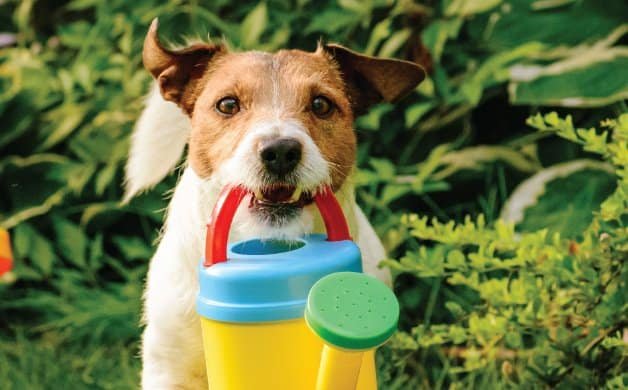Nothing is more painful than a garden that won’t grow. Regardless of whether it’s difficult soil or troublesome pests, a dangerous garden can be genuinely disappointing. These important tips on gardening for beginners that can help you better.
Regardless of whether you are keen on updating your garden or basically rolling out a couple of improvements, consider some significant elements before you begin planting. While numerous individuals head directly to their local gardening supply store to peruse the determinations, making an arrangement heretofore will help you picked plants that will best meet your requirements and flourish in your garden.
It’s anything but difficult to go out and be enticed into purchasing plants that look wonderful at the nursery store, to get them home and acknowledge they are incorrect for your garden. These tips will help you build up an arrangement and put you in making a course for making an excellent, healthy, and flourishing garden.
Need to begin burrowing; however, don’t have a clue where to start? Utilize this present Gardening Tips for Beginnerss, for planting for the solutions to your gardening questions. Continue perusing for the entirety of the essential planting tips and deceives you’ll have to begin.
Tips On Gardening for Beginners
1. Follow the Sun

Misconceiving daylight is a typical entanglement when you’re first figuring out how to plant. Focus on how daylight plays through your garden before picking a spot for your garden. Most consumable plants, including many herbs, vegetables, and organic products, need in any event 6 hours of sun to flourish.
2. Make Compost

It’s difficult to fall into a feeling that compost’s last name is a bin, and that careful layering and turning are a piece of the arrangement. Be that as it may, heaping destroyed leaves in a corner tallies as well. So does “channel fertilizing the soil,” helpful for those with little nursery space, thus does bring your kitchen scraps to a spot (attempt the closest network garden) that will compost them on the off chance that you can’t, which is very important as vegetable gardening for beginners.
3. Make a Maintenance Schedule

Plants, similar to every living thing, acknowledge special attention, and will repay you for giving it. On the other hand, ignoring yard and nursery upkeep can harm the landscape. Protect your gardening investment similarly as you would your great garments, your vehicle, or your home. Acclimate yourself with the necessities of your plants, including watering, weeding, pruning, and fertilizing. At that point, indeed, mark dates on the schedule to help yourself when each remembering work should be finished.
4. Stay Close to Water

A standout amongst other planting tips you’ll ever get is to design your new nursery near a water source. Make sure you can run a hose near to your garden site, so you don’t need to carry water to it every time your plants get parched. An ideal approach to advising if plants need watering is to push a finger an inch down into the dirt. If it’s dry, it’s an ideal time to water.
5. Who Will be Using Your Yard?

Consider who will utilize your yard and how they will utilize it. Will kids use your yard? Do you have pets? Is it right that you are planning to utilize your yard for open-air engaging? Recollect, you can make various spaces for various uses in your landscape, utilizing vital plantings and hardscapes. Walkways can be used to move individuals starting with one zone then onto the next.
Since you will utilize and keep up your yard (or employing somebody to look after it), consider your maintenance style and spending plan. Be as flexible as could reasonably be expected. What amount of time will you genuinely need to place into your garden? Or on the other hand, if you won’t have the opportunity, will you have the cash to pay another person to invest the energy? What amount do you need to put resources into your garden? Deciding the response to these inquiries will help guarantee the accomplishment of your garden for a considerable number of years to come.
6. Plant Crops in Wide Beds

Yields are anything planted for reaping: vegetables, cutting blossoms, bushes on hold to be transplanted. Keeping these assembled as firmly as conceivable in beds that are not trodden upon eliminates weeding, moderates water, permits the fertilizer to be concentrated where it will do the greatest, and improves soil structure a long time as the layers of natural issue heap up.
These beds are frequently raised or if nothing else corralled perfectly by boards or — I saw it once am as yet dazzled every one of these years after the fact—by—long pieces of rock. Style aside, the essential righteousness of this orderliness is simpler way maintenance. From the dirt and plant perspective, it’s the extraordinary treatment that matters.
7. Prepare Soil Before Planting

The big mistake home nursery workers make to plant in unprepared soil. Masters realize that nothing, literally nothing, will accomplish more to advance wellbeing and life span than beautiful, friable (brittle) soil that gives a lot of supplements, lets roots develop uninhibitedly, and holds water, yet depletes enough. The main issue is that most soils don’t care about that, usually! On the off chance that your dirt resembles most, you’ll be including liberal quantities of compost, rototilling compacted soil, or accomplishing other preliminary work. Plan to do this before planting on the grounds that the activity is about difficult to do after plants are in the ground.
8. Protect Your Resources

By picking resource-efficient plants, deliberately overseeing water, and picking naturally reliable hardscapes, you can help secure and save your condition. Before expelling plants from your garden, decide if these plants genuinely should be evacuated or if they could be migrated to another area of your yard or you can plan your garden indoor in metal buildings while choosing new plants, search resource-efficient, ones that will require less water, pesticides, and fertilizers.
When arranging the progressions to your scene, consider introducing a rainwater catchment framework which will furnish you with an environmentally supportable wellspring source of irrigation water. With cautious arranging, such a structure can even be consolidated as an aesthetic design element.

Senior Writer, has been with Rottenpanda.com since 2017. With a bachelor’s degree in communications, Nick specializes in finding interesting topics, gathering details, checking facts, and making complex subjects easy to understand. In addition to writing articles, Nick loves traveling, pets and happily married to Lucy.


![25 Best Birthday Dinner Ideas of 2023 [For Both Adults & Kids] 20 Birthday Dinner Ideas](https://rottenpanda.com/wp-content/uploads/2022/03/Birthday-Dinner-Ideas-600x337.jpeg)



